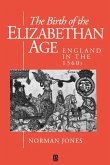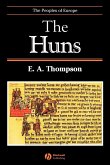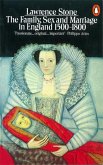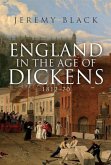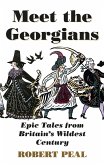Challenges previous assumptions about the 1670s. Based on and quotes a wide range of manuscripts, newsletters, correspondence, contemporary diaries, poems, plays and other documents and printed works. Includes literary sources not only to enrich the coverage of the period, but for interdisciplinary approach to the period.
"This latest volume of the "Blackwell History of Early ModernEngland" series is a most welcome addition ... A lively, engagingbook that illuminates the wide-ranging preoccupations of thereign." Choice
"The book provides a very entertaining and persuasiveillustration of the spirit of a particular age. It also explains,better than ever before, why the various publics of the timethought and reacted to events as they did, and so makes thepolitical history of a notoriously confusing and opaque decade mucheasier to understand." English Historical Review
"This work convincingly disputes the tendency to allow the 1670sto be overshadowed by the Popish Plot and the Exclusion crisis ...Spurr carefully places events in their historical context andavoids anachronism by emphasising the contemporary perception ofevents ... Spurr is judicious in his treatment of literature andconsequently makes a particularly strong case for its reflection ofperiod concerns." Ecclesiastical History
"John Spurr has written a wonderfully intriguing acount of the1670s ... One could give the book to students in the hope that theylearnt how, as well as what, to write." Albion
"The broad scope of themes explored and the extensive use ofcontempary texts to illustrate his argument demonstarte theauthor's impressive grasp of the literature of the period."Warren Johnston, University of Saskatchewan - Canadian Journalof History
"The book provides a very entertaining and persuasiveillustration of the spirit of a particular age. It also explains,better than ever before, why the various publics of the timethought and reacted to events as they did, and so makes thepolitical history of a notoriously confusing and opaque decade mucheasier to understand." English Historical Review
"This work convincingly disputes the tendency to allow the 1670sto be overshadowed by the Popish Plot and the Exclusion crisis ...Spurr carefully places events in their historical context andavoids anachronism by emphasising the contemporary perception ofevents ... Spurr is judicious in his treatment of literature andconsequently makes a particularly strong case for its reflection ofperiod concerns." Ecclesiastical History
"John Spurr has written a wonderfully intriguing acount of the1670s ... One could give the book to students in the hope that theylearnt how, as well as what, to write." Albion
"The broad scope of themes explored and the extensive use ofcontempary texts to illustrate his argument demonstarte theauthor's impressive grasp of the literature of the period."Warren Johnston, University of Saskatchewan - Canadian Journalof History


